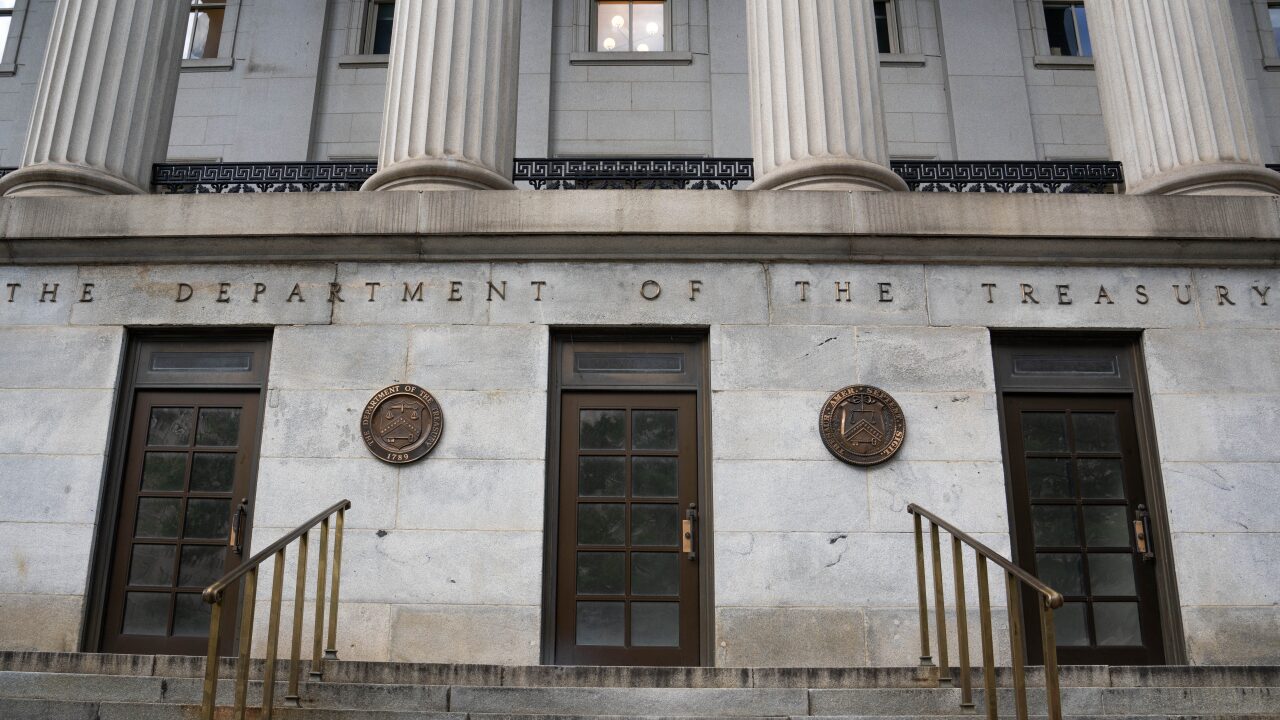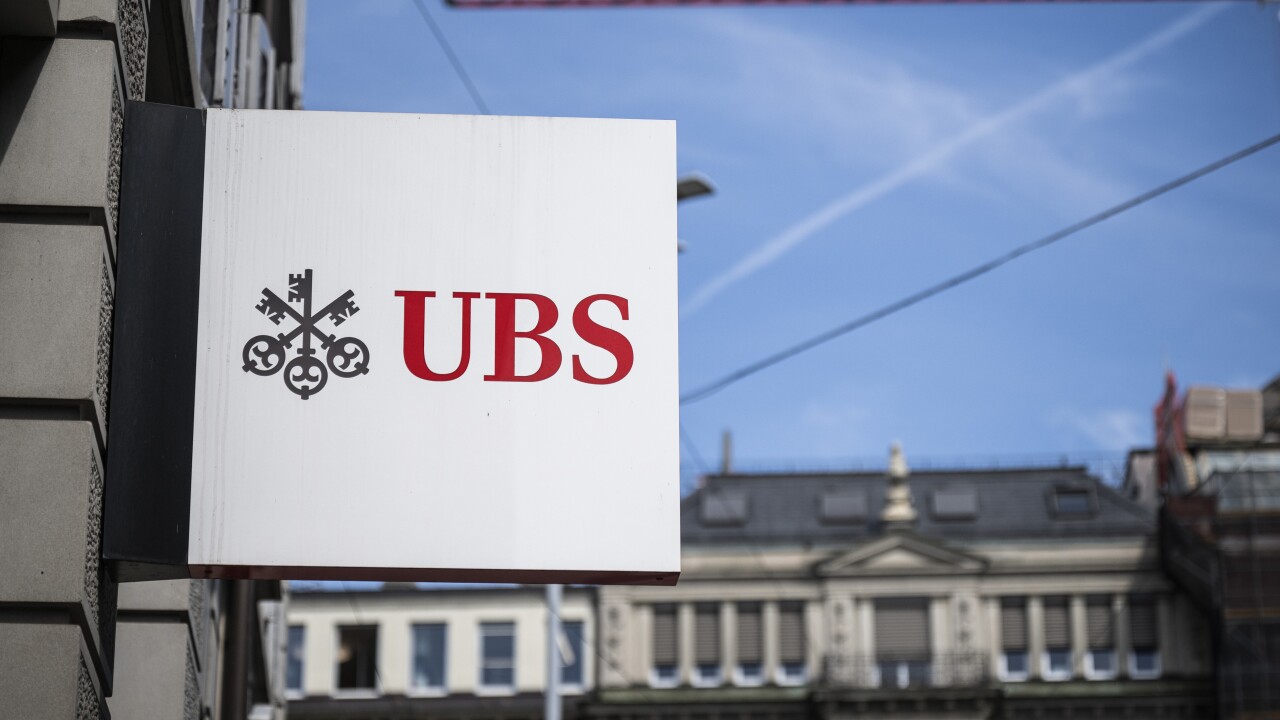-
A measure of daily yield swings is at its highest in a year as traders position for further losses that could send 10-year yields as high as 4.5% over the next three weeks.
October 31 -
Since the first SLL was arranged roughly seven years ago, the market for such loans has grown to almost $1.8 trillion.
October 29 -
Buybacks of Treasuries that are infrequently traded relative to its newest, or "on the run," notes and bonds, are intended to support market resilience by creating opportunities for dealers to offload them.
October 21 -
Traders are pricing in roughly 20% odds that the Fed holds rates steady in either November or December.
October 11 -
The strong jobs report had traders shredding their aggressive bets for outsized rate cuts at the next policy meeting.
October 4 -
Goldman Sachs Group Inc.'s Luke Gillam and Bank of America Corp.'s Murad Khaled, set to join AlbaCore Capital and Apollo Global Management, are the latest in a growing list of top bankers to make the leap.
September 26 -
Five-year notes were the worst performer among Treasury benchmarks, with yields rising by more than 5 basis points, though all rose by at least 4 basis points.
September 25 -
Investors began pulling funds rapidly after it disclosed last month the departure of Chief Investment Officer Ken Leech amid Justice Department and Securities and Exchange Commission probes into its trading practices.
September 20 -
Bonds and stocks are rallying ahead of a critical Fed meeting. But this time, the central question for Chair Jerome Powell is which approach — reducing rates by 25 basis points or 50 basis points.
September 17 -
In trading ahead of the debate, Treasuries rallied as oil tumbled and after U.S. bank regulators released revised details on proposed bank-capital rule changes.
September 10 -
Treasuries have returned 1.7% this month through Aug. 28, on pace for a fourth straight monthly gain, according to the Bloomberg US Treasury Total Return Index.
August 29 -
In the blue-chip bond market, a democratic victory would be supportive for basic industry, capital goods and utilities sectors, but a negative for telecoms, technology, banks, and autos.
August 28 -
Economists are also forecasting faster and deeper cuts to borrowing costs over the next year, and see the central bank reducing the policy rate from the current 4.5% to 3% by next July.
August 26 -
In the run-up to Powell's Jackson Hole speech, Treasuries tumbled across the US curve, with the move led by shorter maturities.
August 22 -
The number of leveraged positions in Treasury futures has risen to an all-time high ahead of the central bank's annual economic symposium in Jackson Hole, Wyoming.
August 20 -
Fora Financial Asset Securitization, 2024-1, is the first for Fora Financial since 2021, and its third securitization overall. Tier 2 saw the greatest shift in credit distributions among the six credit tiers since the last deal.
August 20 -
Traders are pricing in 34 basis points worth of easing at the Fed's September gathering, trimming their expectations from a day earlier — and lowering the odds of a half-point cut at the next central bank meeting to about one-third.
August 14 -
The company is selling bonds in five parts, and the longest portion of the deal, a 40-year note, will yield 1 percentage point above Treasuries.
August 12 -
Many on Wall Street agree that an abrupt end to quantitative tightening, or QT, is unlikely, with policymakers signaling its rolloff of Treasury holdings will finish by year-end.
August 8 -
There's been a resurgence of interest in CLOs. Gross issuance is on track for a record year in Europe, while year-to-date issuance in the market has already exceeded 2023's full-year volume.
July 26

















